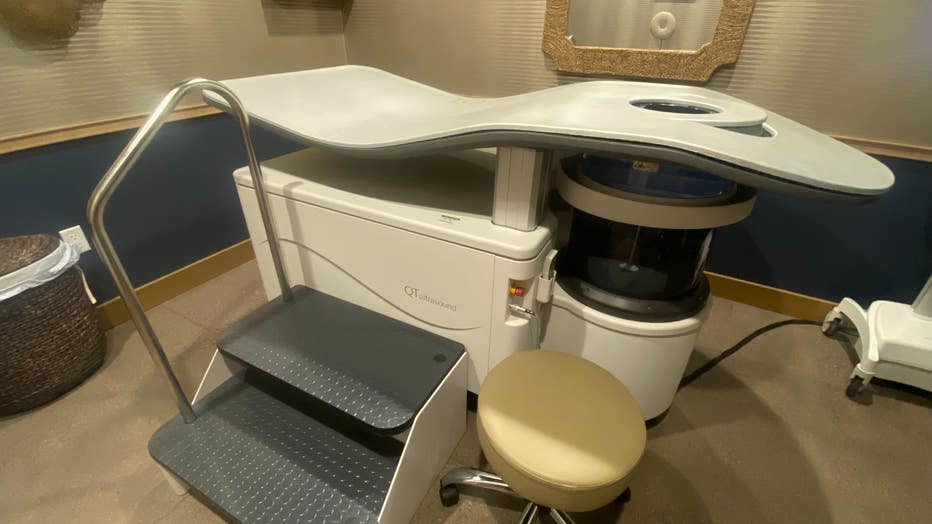Water mammograms: Scottsdale doctors say there's no radiation, compression or contrast
Water mammograms at Scottsdale cancer center
October is Breast Cancer Awareness Month, honoring those impacted, while raising awareness for medical advancements. Over in Scottsdale, doctors are using a cutting edge technology to diagnose and catch these cancers early.
SCOTTSDALE, Ariz. - We all know the traditional mammogram isn't too pleasant, but at Vincere Cancer Center, they're doing things a little bit differently – now, they're using water, which is painless.
"Women lay on their stomach and their breast goes into water," Dr. Vershalee Shukla said. "The benefit of this is there is no radiation, there’s no compression and there’s no contrast."
This is the Quantitative Transmission Ultrasound. It's one of only three across the country, and compared to traditional ultrasounds and mammograms…
"It’s actually more accurate," said Vershalee. "It’s better for dense breast – a lot of women have dense breasts – which traditional mammography is not so good for."
Dr. Shukla says breast cancer is one of the most common cancers she treats, as 1 in 7 women will develop it in their lifetime.

A Quantitative Transmission Ultrasound machine at Vincere Cancer Center in Scottsdale.
Shukla is the co-founder of the Vincere Cancer Center in Scottsdale. They also run a cancer screening program for first responders who are at high risk of developing workplace cancers, like Jeannie Deida, a retired police officer.
"So many of my family members and everybody is getting checked," said Deida. "I would hope that everybody else starts doing it more too …don’t wait. I’m lucky I caught it real, real early, so I am really lucky."
Deida says the Vincere Cancer Center's doctors, treatment and especially the QT ultrasound have made all the difference. The machine takes 3D images without compressing the breast.
"Instead of this using, requiring a human to press on it and find it, this is a machine that’s kind of going all the way around the breast to identify the mass," said Linda Liu, a breast surgeon at the Vincere Cancer Center. "You’re obviously seeing the same mass as the ultrasound, but you get a much better clarity of the picture."
And things are getting even less invasive. They're using and trialing liquid biopsy tests – basically a blood test to detect cancer.
"We’re opening up a clinical study to enroll women under the age of 50 looking for breast cancer with a simple blood test," said Shukla.
"Don't wait until there's something wrong with you before you start focusing on yourself," cautioned Deida.
Map of Vincere Cancer Center:


